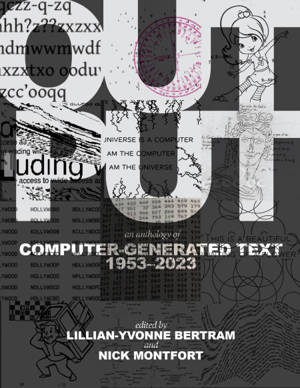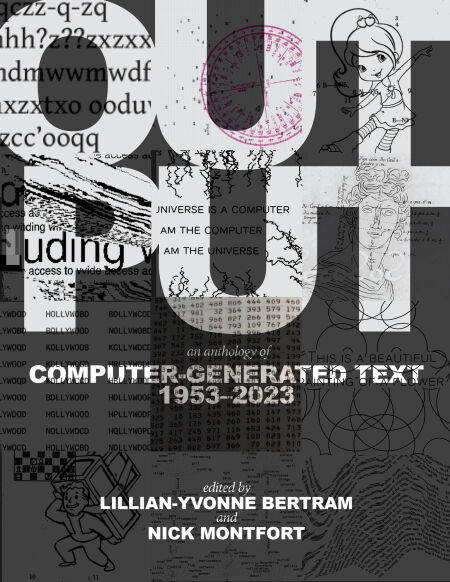
Bedankt voor het vertrouwen het afgelopen jaar! Om jou te bedanken bieden we GRATIS verzending (in België) aan op alles gedurende de hele maand januari.
- Afhalen na 1 uur in een winkel met voorraad
- In januari gratis thuislevering in België
- Ruim aanbod met 7 miljoen producten
Bedankt voor het vertrouwen het afgelopen jaar! Om jou te bedanken bieden we GRATIS verzending (in België) aan op alles gedurende de hele maand januari.
- Afhalen na 1 uur in een winkel met voorraad
- In januari gratis thuislevering in België
- Ruim aanbod met 7 miljoen producten
Zoeken
€ 39,42
+ 39 punten
Uitvoering
Omschrijving
Discover the vast history of machine-written texts from long before ChatGPT in this anthology collecting 7 decades of creative writing produced by computer generation systems.
The discussion of computer-generated text has recently reached a fever pitch but largely omits the long history of work in this area—text generation, as it happens, was not invented yesterday in Silicon Valley. This anthology, Output, thoughtfully selected, introduced, and edited by Lillian-Yvonne Bertram and Nick Montfort, aims to correct that omission by gathering seven decades of English-language texts produced by generation systems and software. The outputs span many different types of creative writing and include text generated by research systems, along with reports and utilitarian texts, representing many general advances and experiments in text generation.
Output is first and foremost a collection of outputs to be encountered by readers. In addition to an overall introduction, each of the excerpts is introduced individually and organized by fine-grain genre including conversations, humor, letters, poetry, prose, and sentences. Bibliographic references allow readers to learn more about outputs and systems that intrigue them. Although Output could serve as a reference book, it is designed to be readable and to be read. Purposefully excluded are human–computer collaborations that were conceptually defined but not implemented as a computer system.
Copublished by Counterpath Press
The discussion of computer-generated text has recently reached a fever pitch but largely omits the long history of work in this area—text generation, as it happens, was not invented yesterday in Silicon Valley. This anthology, Output, thoughtfully selected, introduced, and edited by Lillian-Yvonne Bertram and Nick Montfort, aims to correct that omission by gathering seven decades of English-language texts produced by generation systems and software. The outputs span many different types of creative writing and include text generated by research systems, along with reports and utilitarian texts, representing many general advances and experiments in text generation.
Output is first and foremost a collection of outputs to be encountered by readers. In addition to an overall introduction, each of the excerpts is introduced individually and organized by fine-grain genre including conversations, humor, letters, poetry, prose, and sentences. Bibliographic references allow readers to learn more about outputs and systems that intrigue them. Although Output could serve as a reference book, it is designed to be readable and to be read. Purposefully excluded are human–computer collaborations that were conceptually defined but not implemented as a computer system.
Copublished by Counterpath Press
Specificaties
Betrokkenen
- Uitgeverij:
Inhoud
- Aantal bladzijden:
- 504
- Taal:
- Engels
- Reeks:
Eigenschappen
- Productcode (EAN):
- 9780262380850
- Verschijningsdatum:
- 4/11/2024
- Uitvoering:
- E-book
- Beveiligd met:
- Adobe DRM
- Formaat:
- ePub

Alleen bij Standaard Boekhandel
+ 39 punten op je klantenkaart van Standaard Boekhandel
Beoordelingen
We publiceren alleen reviews die voldoen aan de voorwaarden voor reviews. Bekijk onze voorwaarden voor reviews.








